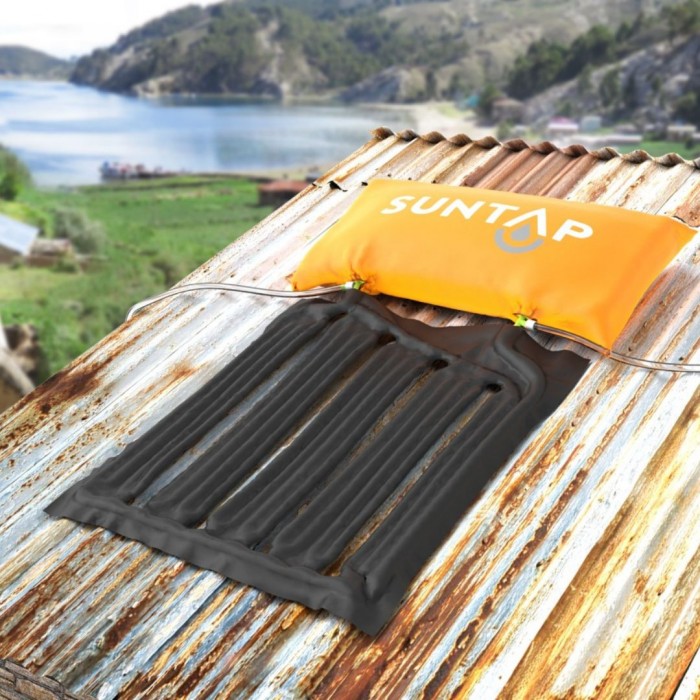Upon conducting research in an impoverished area of Mexico, Salz learned that residents had to use two different sources of heat for daily activities; often cooking meals and heating water using wood-burning fires instead of a gas supply, which was only used for quick cooking due to high costs. Heating water over a flame, apart from being arduous and inefficient, can pose serious fire hazards. Salz then set out to design an alternative to slow or expensive water heating technology to make water heating more accessible to emerging markets.
The Suntap Solar Water Heater, the design of which has been in production since 2015, fashions itself as “the world's most affordable solar water heater”. Suntap aims to tackle three issues that arise from lack of access to affordable water-heating options: health, environment and dignity.
The Suntap water heater employs an unconventional design that is affordable, low tech, compact, and easy to install. Solar thermal technology is used to transform the sun’s heat directly into hot water in a thermosyphon system that uses natural circulation reliant on gravity and not an external pump. Existing gravity-fed water tanks fill each Suntap system with cold water; the sun then heats the water in the panel causing the warmer water to rise, which then uses natural circulation to move into insulated tanks for storage. On a warm day, Suntap produces 56 litres of over 70°C hot water. This is comparable to 2kg of wood used in wood-burning fires, 250ml of a gas canister and 3 square meters of solar cells.
Suntap was first tested with the Fernandez family in Puebla, Mexico. This family has a new home with a gas supply, yet they're still cooking meals and heating water behind their house on an open fire because of the high cost of gas and electricity. The Suntap heater was installed in conjunction with the existing water tank on the roof. Suntap can be attached easily and in a cost-effective manner. At the time of the testing, the Fernandez family was bathing every third day, an issue that the family believed they would be able to tackle with the increased warm water access. Further research was also conducted in Bihar, India, where Salz heard feedback about the prototypes and the importance of hot water for well-being.
Salz is hopeful that, with the help of low-income housing developers, they will be able to equip homes in emerging markets across the globe with the affordable solar thermal water heater.
Read more:
Credits: Suntap







